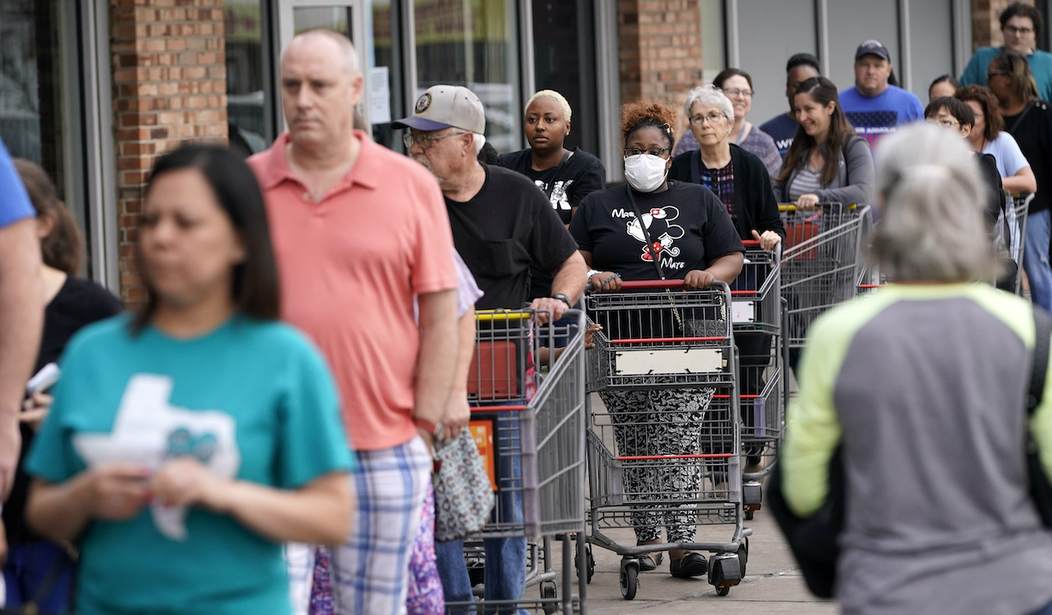There are now over 850,000 coronavirus cases and counting in the United States. Experts estimate that over a million Americans could soon carry it—but working together we can prevent that projection from becoming a reality. The spread can be curbed, and the curve flattened, with sound policies that prevent exposure to coronavirus while also ensuring that Americans have access to the supplies they need.
Most states have ordered their residents to stay home and only travel when necessary. This prevents millions of Americans from encountering the virus. But as more Americans shelter in place hoping to flatten the curve, consumption and demand for basic necessities and medical supplies, like hand sanitizer, will increase, especially given that states are urging their residents to buy these products.
But how can Americans buy those necessary items if supply chains are disrupted? States that issue stay-at-home orders must ensure that supply chains for these critical products remain open. Restricting certain businesses from staying open could lead to Americans finding more empty store shelves. Grocery stores, while critical, alone cannot absorb the added stress of increased consumer demand. California realized this. In its statewide quarantine order, it correctly identified businesses like pharmacies and convenience stores, which carry groceries and medical products, as essential businesses. The state kept many distributors of critical supplies open to make them accessible for a wide swath of its residents, as recommended by the Department of Homeland Security.
Convenience stores, for example, can relieve much of the pressure that some stores are facing. They are stocked with much of the same medications and groceries as major retailers, servicing as an inclusive community hub, particularly for rural and urban parts of the country. An estimated 93 percent of Americans are within 10 miles of a convenience store that has the products they need. The accessibility of vital goods for communities nationwide is critical in times of crises.
Recommended
In addition to ensuring critical components of the food supply chain are deemed essential, our elected officials also must ensure that they can access the resources they need to maintain their ability to serve our communities. Convenience stores like many other businesses are reporting a loss in income, some up to 40% or more, and are struggling to make ends meet.
And while other businesses deemed essential can get small business loans and increased flexibility to help them through this difficult time, somehow convenience stores have been overlooked. The CARES Act, which recently passed Congress, allocated resources to provide economic stability to businesses and individuals. However, this bill only allowed some businesses greater flexibility when applying for relief, and convenience stores were not included.
Businesses supplying our communities with critical food items and essential goods should at the very least be provided the same economic support as restaurants. In order to ensure that is the case, Congressional leaders like Senator Mitch McConnell and Congressman Kevin McCarthy should update the CARES Act to ensure that essential businesses like convenience stores are able to access critical small business loans to continue operating.
It is up to our elected officials to help alleviate the current strain on our supply chains, while providing Americans with the security of knowing they can get the essential supplies they need. In this time of crisis, being able to purchase essential goods, like toilet paper, is a step towards normalcy that we all could use.
North Carolina State Senator Todd Johnson
























Join the conversation as a VIP Member